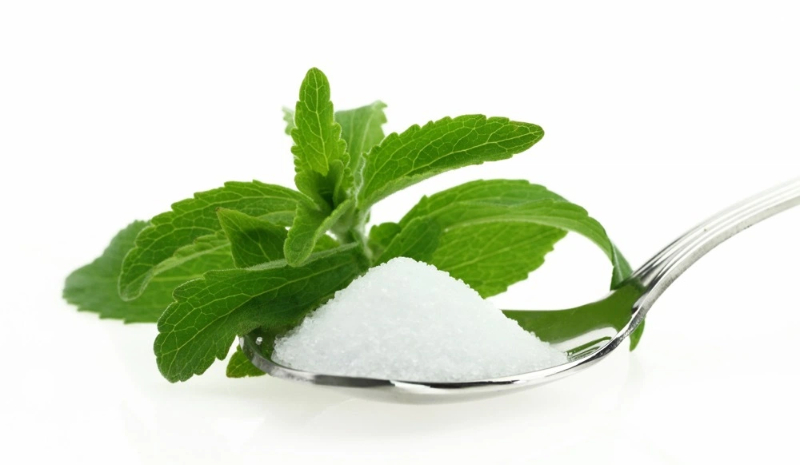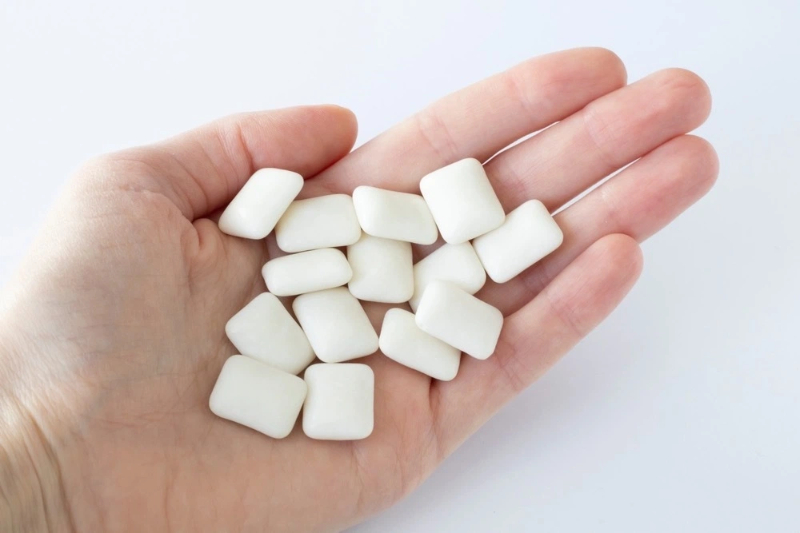Views: 222 Author: Sara Publish Time: 2025-07-26 Origin: Site








Content Menu
● Understanding Stevia as a Sweetener
● The Relationship Between Stevia and Appetite
>> Appetite, Hunger, and Sweetness: What Happens Biologically?
>> Clinical Research on Stevia and Appetite Control
>> Stevia, Hormones, and Metabolic Effects
● Broader Health Benefits of Stevia Beyond Appetite
● Applications of Stevia in Industry
● Consumer Perception and Market Trends
● FAQ
>> 1. Does stevia make you hungry?
>> 2. How does stevia affect blood sugar and insulin levels?
>> 3. Is stevia safe for long-term consumption?
>> 4. Can stevia be used in diabetic-friendly products?
>> 5. How does stevia compare to artificial sweeteners regarding appetite?
Stevia, a natural, zero-calorie sweetener derived from the leaves of the Stevia rebaudiana plant, has surged in popularity as a sugar substitute in food, beverage, and medical health products worldwide. One of the key questions frequently asked by consumers, health professionals, and manufacturers is: Does stevia increase appetite? The scientific evidence accumulated so far strongly suggests that stevia does not increase appetite and may even help reduce hunger sensations. This characteristic makes stevia a promising ingredient for healthy formulations designed to reduce sugar intake without promoting overeating or weight gain.

Stevia's sweetness comes from natural compounds called steviol glycosides, primarily stevioside and rebaudioside A, which are hundreds of times sweeter than sucrose but contribute no calories. Unlike sugar, which provides energy and can impact blood glucose directly, stevia satisfies the sweet craving without the metabolic consequences that often lead to increased hunger.
The rise in stevia use reflects a growing global awareness of the adverse effects of overconsumption of sugar, which is linked to obesity, diabetes, and other metabolic disorders. Manufacturers in food, beverage, and healthcare sectors seek natural, healthier alternatives to meet consumer demand for low-calorie and sugar-reduced products. Stevia fits well in this role because it can deliver sweetness without calories and without disturbing normal appetite regulation.
The relationship between sweetness and appetite is complex. Typically, eating sugar-containing foods causes blood sugar levels to rise. This triggers insulin secretion, which helps cells take up glucose and subsequently lowers blood sugar levels. A rapid blood sugar drop after a spike often signals the brain to increase hunger, leading to cravings and potential overeating.
Stevia, however, does not affect blood glucose or insulin levels because it contains no digestible carbohydrates. Therefore, it does not cause the physiological blood sugar spikes or drops that are known triggers for increased appetite.
Moreover, the brain's response to sweet taste does influence dopamine and reward pathways, which are involved in food enjoyment and desire. But stevia's ability to activate these pathways does not extend to increasing food intake or hunger feelings based on current research.
Numerous clinical studies have examined whether consumption of stevia impacts appetite, hunger, or overall calorie intake. The majority find that stevia:
- Does not increase subjective feelings of hunger after consumption compared to sugar or water.
- Does not cause an increase in calorie intake at subsequent meals.
- May, in some cases, reduce hunger sensations or help maintain satiety.
These findings suggest that stevia functions as a non-nutritive sweetener that does not promote compensatory overeating, unlike sugar.
Studies comparing stevia to other artificial sweeteners such as aspartame or sucralose generally show that stevia's effects on appetite are neutral or beneficial. Unlike some artificial sweeteners, which have been controversially linked with altered gut microbiota or appetite signals, stevia demonstrates a benign profile with respect to hunger regulation.
Appetite is regulated not only by external dietary factors but also by a complex interplay of hormones, including ghrelin (which stimulates appetite), leptin (which signals satiety), GLP-1 (glucagon-like peptide-1), and pancreatic polypeptide. Current evidence indicates:
- Stevia does not stimulate ghrelin production or other hunger-related hormones.
- It might modestly influence satiety hormones in ways that promote fullness.
- Importantly, unlike sugar, it does not cause insulin spikes that can indirectly increase hunger signals.
By avoiding the hormonal disturbances associated with sugar, stevia supports better appetite regulation.

Besides its neutral or appetite-suppressing effects, stevia offers other health benefits that make it attractive in the food and healthcare industry:
- Blood glucose management: Stevia helps maintain more stable blood glucose and insulin levels, beneficial for people with diabetes or insulin resistance.
- Weight management: By reducing calorie intake from sugars while maintaining sweet taste, stevia contributes to caloric control, supporting weight loss or maintenance efforts.
- Dental health: Stevia does not promote dental caries unlike sugar, providing additional oral health benefits.
- Natural origin and safety profile: Derived from a plant, stevia is perceived as a clean-label ingredient. It has been extensively evaluated and approved by global health authorities including the FDA, EFSA, and WHO.
These advantages reinforce stevia's role as a functional ingredient that supports overall metabolic health, beyond just its effect on appetite.
For manufacturers specializing in natural healthy solutions, stevia's versatile properties make it ideal for inclusion in a range of products:
- Mixed sweeteners: Formulating blends of stevia with natural polyols and fibers to optimize taste, texture, and stability while reducing calories.
- Beverages: Incorporating stevia in flavored water, teas, juices, and functional drinks to provide sweetness without sugar.
- Tablets and supplements: Stevia's compatibility with tablet production processes enables development of chewable products and nutraceuticals.
- Bakery and dairy products: Using stevia to reduce sugar content without compromising flavor or texture.
- Medical nutrition: Creating sugar-free or low-sugar formulations for patients requiring specialized diets.
These applications align well with market trends demanding natural, safe, and effective alternatives to sugar that do not cause increased appetite or overeating.
Consumers increasingly seek natural, low-calorie sweeteners that satisfy sweet cravings without health trade-offs. Stevia enjoys a positive reputation as "natural" and "safe," attributes highly valued in health-conscious markets.
Today's food and beverage innovation emphasizes clean ingredients and sugar reduction, largely driven by government regulations and public health campaigns. Stevia's role in this global shift is expanding rapidly, supported by continuous research confirming its safety and functional benefits.
Based on extensive scientific evidence, stevia does not increase appetite and may even help reduce feelings of hunger compared to sugar. As a natural, zero-calorie sweetener, stevia offers sweetness without triggering the blood glucose and hormonal fluctuations that typically provoke increased appetite and food intake. This makes stevia a valuable ingredient for developing healthier, sugar-reduced foods and beverages that support weight management and metabolic health.
Stevia's stable blood sugar and insulin profiles, combined with its neutral or potentially appetite-suppressing effects, reinforce its benefits for individuals seeking to reduce calorie intake and manage hunger effectively. Its excellent safety record and natural origin further enhance its appeal among manufacturers and consumers alike.
In conclusion, stevia is an ideal sweetener choice for those aiming to enjoy sweetness without risking increased appetite or weight gain, contributing positively to global efforts in reducing sugar intake and promoting healthier diets.

No, scientific studies show that stevia does not increase hunger or cause higher calorie intake. It may actually reduce subjective hunger compared to sugar.
Stevia has minimal impact on blood glucose and insulin, helping maintain stable levels unlike sugar, which causes spikes that can trigger hunger and cravings.
Yes, stevia is considered safe based on regulatory approvals worldwide, with no toxic or carcinogenic effects when consumed within recommended limits.
Absolutely. Since stevia does not affect blood sugar, it is ideal for products designed for diabetic individuals or people monitoring carbohydrate intake.
Stevia does not increase appetite or food intake, whereas some artificial sweeteners have been associated with altered appetite signals. This makes stevia a preferable natural alternative for appetite regulation.
